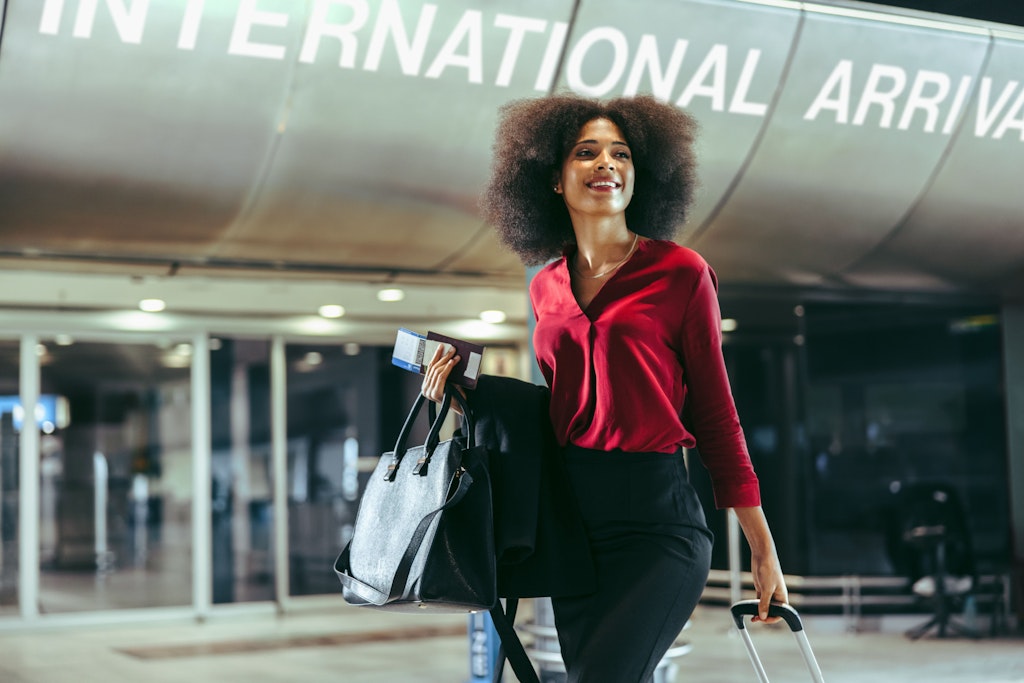Only a third of employees are happy to travel for work again
Last updated on 19 October 2023

After a long and challenging battle with the COVID-19 pandemic, the world is gradually returning to a semblance of normalcy. With travel restrictions stabilising and vaccination rates rising, the prospect of work-related travel is becoming a reality once again. This leaves workers with two choices: to continue working remotely or to embrace the thrill of business travel once more.
According to an opinion survey commissioned by World Travel Protection, 66% of business travellers feel cautious about resuming travel for work.
This sentiment might be attributed to health and safety concerns, as well as the realisation of the benefits and comforts of remote work during the pandemic. This shouldn’t come as a surprise, as the world was isolated from society and confined to its four walls for a very long time.
Travellers who have voiced their apprehensions on work trips are concerned about their health and well-being while commuting in today’s times when compared to before the pandemic. Most have said they often experience anxiety and feel homesick.
Adding to that, flights and airlines have been experiencing severe staff shortages since the COVID-19 pandemic, leading to last-minute cancellations and long-haul flights. Travellers have notably expressed their concerns over being stranded overseas in such situations, away from family and friends without clarity on their itinerary.
In reality, very few businesses provide their employees with the critical education and information they need to prepare for an emergency during an official trip.
Less than three in 10 employees have stated that their employer has provided them with practical advice while travelling, including who to contact in an emergency or what to do in the event of an incident. And only a small majority of business travellers believe their employer would be able to help if they had an emergency or personal crisis while overseas.
On the other hand, the survey suggests that just a third of business travellers (33%) say they are happy to be travelling for work again.
For those who thrive on new experiences, work-related travel offers a chance to explore new cities, cultures, and cuisines. Beyond the confines of a video call, face-to-face interactions enable better communication, relationship-building, and the chance to make a lasting impression. Travelling for work fosters personal and professional growth, as it challenges individuals to adapt to different environments and situations.
The comforts of remote work
While work-related travels are exciting, remote work has its charms too. The pandemic has demonstrated the feasibility and efficiency of remote work arrangements, allowing employees to maintain a better work-life balance and eliminating the need for daily commutes. Many have found that working from home enhances focus, creativity and productivity, as they have the freedom to create their ideal work environment.
The appeal of remote work
Among those who prefer to continue remote work, the reasons are manifold. The flexibility to manage personal and professional commitments without the constraints of office hours is appealing. Remote work has also allowed employees to eliminate the stress of commuting, offering a better work-life balance. Furthermore, remote work has shown that productivity and efficiency need not be compromised outside a traditional office setting.
Employees appreciate the autonomy and trust given to them by their employers, which has resulted in increased job satisfaction and loyalty. After years of working remotely, often from the comfort and convenience of a home office, this hardly seems a surprise. Today’s travel landscape has never been more volatile, complex, or unpredictable, and it’s trickier than ever to navigate the risks.
The hybrid work model: Best of both worlds
In an attempt to recognise the best of both worlds, many companies are adopting a hybrid work model. This model combines remote work with periodic business travels. It allows employees to enjoy the benefits of working from home while still participating in in-person meetings and events when necessary.
Life after the COVID-19 pandemic offers exciting prospects for work-related travels and remote work. While the thrill of business travel beckons, the comforts and benefits of remote work are equally alluring. With nearly 9-out-of-10 Australian businesses considering bringing their workforce into the office full-time, workers will soon face the dilemma of choosing between commuting to the bustling CBD or continuing with the familiarity of working from the comfort of their homes.
In a survey that included 300 hiring managers, over 26% stated that they would want their employees to work in the office four days a week, with only 2% stating a one-day working-from-office mandate.
In the end, the decision rests with each individual based on their preferences, job roles and personal circumstances. Whether it’s packing suitcases, joining forces in rush hour traffic or setting up a home office, the future looks promising and adventurous.